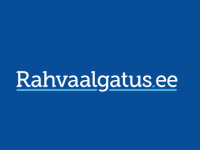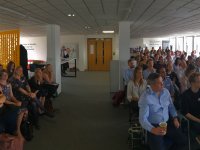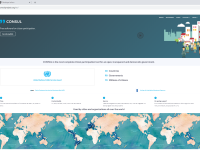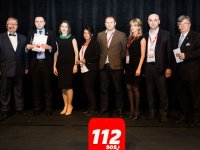The platform, Rahvaalgatus.ee is digital infrastructure that enforces the new civic right to address the Parliament of Estonia with collective proposals by citizens. The open-source platform enables to first discuss upon a relevant topic, then co-create the proposal, gather digital signatures to it, send the proposal to the parliament, and get updates on the process in the parliament.
Innovation Tag: Open Government
SKYrooms is a network of spaces that enable effective collaboration across sectors to inspire breakthrough innovation. The prototype, which overlooks Big Ben, was developed with IDEO and the Royal College of Art. It celebrates both historic architecture and cutting edge technology, using design to signal new ways of working, new permissions and embed an innovation culture.
Innovative use of digital and online opportunities has made it easier for people to have a greater say in local decision-making in Scotland. A unique cross-sector collaborative approach was taken to developing digital, with collective solutions and sharing of learning achieved through an open, iterative and experimental methodology. The Scottish Government encouraged rapid growth of participatory budgeting and digital, in line with the ambitions of open government and strengthening democracy.
The Better Government Movement (BGM), housed on Innovation.gov, builds a 21st century, delivery-driven government. BGM creates an inclusive space where public servants can grow their creative capacity and learn new tools, approaches, and mindsets to jumpstart innovation. This is in service of solving government-wide problems and affecting positive change within agencies and government writ large.
CivTech is the Scottish Government’s challenge programme for innovation. The programme pioneers a smarter, faster approach to public procurement to harness entrepreneurial tech innovation and citizen engagement, improving public service delivery, creating economic development opportunities and fostering an entrepreneurial mindset within government.
CONSUL is an online platform for public participation in decision-making, launched initially by the Madrid city council and subsequently adopted by several governments all over the world. The platform benefits from its open source code, making it free for any government, or CSO, to make use of it and propose improvements. CONSUL is designed for citizens to voice their concerns and participate through the development of proposals, votes for new laws, debates, crowd laws, participatory budgets…
This project presents the new approach in service delivery, through which we enabled deaf and hard of hearing persons to have an access to the most essential services, such as emergency call and civil registry services. Tireless engagement of deaf community in service design resulted in elaboration of user centered and People with Disabilities-tailored services, enabling beneficiaries to contact emergency services using a text-based or a video calling system and squire necessary civil documents…
In 2015, a constitutional reform on transparency allowed the INAI to propose a specific set of actions to adopt and institutionalize open government principles in Mexico. Thus, it designed a comprehensive strategy that mainly consisted of the implementation of provisions, methodologies and public policies to guide and articulate the design, implementation, and operation of open government in public institutions, the three levels of government and the three branches of government nationwide.
We have brought together all data projects into a single programme to provide strategic oversight and a common vision. This encompasses a number of projects which are driving the department to better enabling data sharing, creating comparable datasets, open up our data for others to use and connecting our own data with others- transforming the way DCLG’s data can be used.
Case Study
MAGMA Indonesia (Multiplatform Application for Geohazard Mitigation and Assessment in Indonesia)
MAGMA Indonesia is an system that streamlines the process of geological hazard mitigation. It raises the bar on the standard of data monitoring and management for Indonesian government agencies. MAGMA digitizes relevant geological data into integrated databases, making them easier to analyze and use. Frequent readings and analytics can now be made ready in an almost-real-time manner. As a public service, MAGMA makes geological hazard mitigation and assessment available for free, anytime and…




